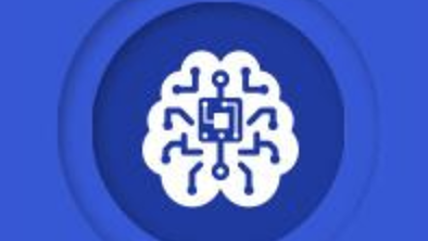In today’s rapidly evolving digital landscape, artificial intelligence (AI) has emerged as a transformative tool for marketers seeking innovative ways to reach consumers. The rise of AI-powered solutions is reshaping the fundamentals of marketing strategy by providing actionable insights, automating tedious tasks, and personalizing customer experiences at scale. This comprehensive guide delves into how AI is fueling growth and powering new marketing strategies, offering a roadmap for businesses eager to harness the potential of cutting-edge technology.
AI in marketing refers to the application of machine learning algorithms, natural language processing, and data analytics to understand consumer behavior, optimize marketing tactics, and increase overall operational efficiency. Unlike traditional methods that rely heavily on manual data collection and interpretation, AI systems automatically process large amounts of data and deliver insights in real time. This shift from reactive to proactive marketing has opened new avenues for growth and business development.
The Evolution of Marketing Strategies
For decades, marketing strategies have depended on historical data and general market research. However, the advent of AI has redefined how strategies are formed and executed. By integrating AI, businesses can access detailed consumer profiles, predict market trends, and develop campaigns that are both dynamic and highly targeted. The evolution can be seen in several key stages:
A. Data Collection and Analysis: Initially, marketers collected data manually, analyzing consumer behavior through surveys and sales reports. Today, AI automates these processes, analyzing millions of data points instantly.
B. Personalization: Traditional one-size-fits-all messaging is being replaced by hyper-personalized content. AI algorithms segment audiences and tailor messages to individual preferences, increasing engagement rates and conversion opportunities.
C. Automation: Tasks such as email marketing, social media posting, and ad bidding are now automated by AI, freeing marketers to focus on strategy and creative pursuits.
D. Predictive Analytics: Leveraging historical data and current trends, AI models predict future consumer behavior, allowing marketers to refine campaigns before significant investments are made.
The Impact of AI on Marketing Strategies
The infusion of AI in marketing offers several tangible benefits. As marketers integrate these powerful tools, businesses experience improvements across multiple dimensions of their marketing efforts.
A. Enhanced Customer Insights
One of the greatest strengths of AI lies in its ability to process vast quantities of data to generate deep consumer insights. By analyzing behavioral patterns, purchase history, and online interactions, AI paints a detailed picture of customer preferences and tendencies. This refined understanding enables companies to design marketing campaigns that resonate on a personal level.
B. Increased Efficiency Through Automation
Automation reduces manual labor and minimizes human error. AI-powered marketing platforms manage repetitive tasks, allowing teams to focus on strategy, creative design, and customer engagement. Some examples of automation include:
- A. Email Campaigns: AI can segment email lists, determine optimal send times, and personalize content based on customer behavior.
- B. Social Media Management: Automated scheduling, post recommendations, and engagement tracking empower businesses to maintain a vibrant online presence.
- C. Ad Buying: Programmatic advertising leverages AI to adjust bids in real time, ensuring the right consumers see the right ads at the right time.
C. Predictive Analytics and Improved Decision Making
Predictive analytics is one of the most powerful applications of AI in marketing. By forecasting future trends and consumer behavior, companies can make proactive decisions that reduce risk and enhance marketing effectiveness. These insights are especially useful in:
- A. Inventory Management: Anticipating demand fluctuations enables better supply chain decisions.
- B. Budget Allocation: Predictive models help marketers allocate budgets more efficiently by identifying high-potential channels.
- C. Content Strategy: Analyzing trends predicts which content topics and formats will perform best, leading to more engaged audiences.
D. Personalization at Scale
Personalization isn’t limited to addressing customers by their first names anymore. AI enables brands to deliver deeply customized experiences to thousands or even millions of consumers. Through real-time behavioral tracking and data analysis, personalization can extend to:
- A. Customized Landing Pages: Websites dynamically adjust content to suit individual visitor profiles.
- B. Product Recommendations: E-commerce platforms use AI to suggest products based on browsing and purchase behavior.
- C. Tailored Communication: Chatbots and customer service tools provide responses that cater specifically to user inquiries and preferences.
AI-Powered Marketing Tools and Technologies
The rise of AI in marketing has led to the development of numerous tools that help businesses streamline operations, improve customer targeting, and generate measurable results. Below are some key categories and examples:
A. Chatbots and Virtual Assistants
AI chatbots and virtual assistants have revolutionized customer service by providing instant responses and round-the-clock support. These tools use natural language processing to understand and respond to customer inquiries, reducing wait times and improving satisfaction. They can be integrated into websites, social media platforms, and mobile apps.
B. Predictive Analytics Platforms
Predictive analytics platforms process large datasets to forecast consumer trends and market conditions. Using historical data, these tools help marketers identify high-value leads, predict campaign performance, and proactively adjust strategies. They are invaluable in reducing guesswork and ensuring data-driven decision-making.
C. Programmatic Advertising
Programmatic advertising automates the process of buying digital advertising, utilizing AI to bid for ad spaces in real time. By analyzing user data and ad performance, programmatic platforms ensure that ads are displayed to the most relevant audiences at optimal times, which increases the return on investment (ROI).
D. Content Creation and Optimization Tools
Content creation is rapidly evolving, thanks to AI-powered writing assistants and optimization tools. These platforms not only help generate articles, social media posts, and marketing copy but also ensure the content is search engine optimized (SEO) and aligns with target keywords. Additionally, they offer insights into how content is performing and recommend improvements.
E. Customer Relationship Management (CRM) Systems
Modern CRM systems integrate AI to provide a more comprehensive view of customer interactions, preferences, and behaviors. These systems predict customer needs and offer personalized engagement strategies, leading to improved customer satisfaction and retention.
F. Social Media Monitoring Tools
Social media monitoring tools powered by AI can analyze online conversations and trends in real time. By tracking sentiment and engagement, these tools help businesses respond swiftly to emerging topics or negative feedback, thereby maintaining a positive brand image.
Implementing AI in Your Marketing Strategy
Successful implementation of AI in marketing requires careful planning, a clear understanding of the objectives, and a willingness to adapt to new technologies. Here are some strategic steps to consider:
A. Define Clear Objectives
Before diving into AI adoption, outline your marketing goals. Are you aiming to improve customer engagement, reduce operational costs, or generate more leads? Defining objectives ensures that AI tools and technologies are aligned with the broader business strategy.
B. Invest in the Right Technologies
Not all AI tools are created equal. Conduct thorough research to identify solutions that suit your business size, industry, and specific needs. Consider factors such as integration capabilities, user-friendliness, and scalability when selecting AI platforms.
C. Train Your Team
The transition to AI-enhanced marketing requires that your team is comfortable and proficient with new technologies. Invest in training sessions and workshops that familiarize your staff with AI tools, their functionalities, and best practices for using them effectively.
D. Start Small and Scale Gradually
Implement AI solutions incrementally. Start with a single function—such as automating email campaigns—and gradually expand to other areas as the team becomes more familiar with the technology. This phased approach minimizes disruption and allows you to measure the impact step-by-step.
E. Monitor Performance and Optimize Regularly
Implement a robust system for monitoring the performance of AI-powered initiatives. Track key performance indicators (KPIs) such as customer engagement, conversion rates, and ROI. Use these insights to refine your strategies and ensure continuous improvement.
Overcoming Challenges in AI Adoption
While AI offers remarkable opportunities for marketing innovation, its implementation is not without challenges. Addressing these issues early on is essential to harness its full potential.
A. Data Privacy and Security
One of the most significant challenges with AI is ensuring that data privacy and security standards are met. Businesses must comply with regional regulations such as GDPR or CCPA to protect customer data. Establishing a transparent data management strategy and regularly auditing systems for vulnerabilities are critical steps.
B. Integration with Existing Systems
Integrating AI tools with traditional marketing systems can be complicated. Compatibility issues may arise, and staff members might resist changes. A gradual integration plan and comprehensive training can help ease the transition and ensure a smooth implementation process.
C. High Initial Investment
The financial commitment required to implement AI solutions can be a hurdle for small or mid-sized businesses. However, investing in scalable technology with long-term benefits can yield substantial returns. Exploring flexible financing options and strategic partnerships may help offset initial costs.
D. Talent Gap and Skill Shortages
There is currently a high demand for skilled professionals in AI and data analytics. Businesses might struggle to find experts capable of managing and interpreting AI systems. To overcome this challenge, invest in employee training, partner with specialized agencies, or consider outsourcing certain functions to experts in AI.
E. Managing Change and Resistance
Shifting to an AI-driven marketing model may encounter internal resistance due to fear of the unknown or concerns about job displacement. Establishing clear communication about the benefits of AI, coupled with reassurance that technology will augment rather than replace human roles, is essential in managing change effectively.
Future Trends in AI-Driven Marketing
As AI technology continues to advance, several trends are expected to further transform marketing strategies. Staying ahead of these trends can provide your business with a competitive edge.
A. Hyper-Personalization
The next frontier of personalization is hyper-personalization, where AI not only tailors marketing messages to consumer segments but also adapts them in real time based on immediate context and behavior. This could include personalized website experiences, live chat interactions, and dynamically generated content that reacts to user behavior.
B. Voice and Visual Search Optimization
With the increasing use of voice assistants and visual search tools, businesses are paying close attention to these emerging channels. Optimizing for voice search requires a different approach than traditional SEO, and AI tools can help identify the nuances of conversational language patterns. Similarly, visual search optimization leverages image recognition technology to provide more accurate product recommendations.
C. Augmented Reality (AR) and Virtual Reality (VR)
As AR and VR become more accessible, brands are using these technologies to offer immersive experiences. AI plays a key role in creating interactive and adaptive content that can enhance customer engagement. Imagine a scenario where a customer can virtually “try on” clothes or experience a product demo at home.
D. Advanced Chatbots and Virtual Assistants
The evolution of chatbots will continue as these virtual assistants become smarter, more intuitive, and capable of handling complex queries. Integrating natural language processing with contextual understanding will result in seamless customer service experiences.
E. Integration of Blockchain with AI
Blockchain technology is gradually being integrated with AI to enhance data security and improve transparency in digital transactions. In marketing, this could lead to more secure handling of customer data and more reliable tracking of campaign performance, ensuring that brands and consumers maintain trust in their digital interactions.
Measuring the Success of AI-Powered Marketing Strategies
To gauge the effectiveness of AI in marketing, robust measurement and analytics are essential. Here are key steps to ensure your strategies yield tangible results:
A. Define Key Performance Indicators (KPIs)
Identify specific KPIs that align with your marketing objectives. Common KPIs include:
- A. Conversion Rates: Measure the success of turning prospects into customers.
- B. Engagement Rates: Track how effectively content and campaigns are engaging your audience.
- C. Customer Retention: Monitor repeat customers and how well the AI-driven strategies maintain long-term loyalty.
- D. ROI: Evaluate the return on investment of AI initiatives against their costs.
B. Leverage Real-Time Analytics
Implement AI-enhanced analytics platforms that provide real-time data on customer interactions and campaign performance. This allows you to adjust strategies on the fly, ensuring that your marketing efforts remain agile and responsive to market changes.
C. Conduct Regular Audits
Schedule regular audits of your AI systems and marketing campaigns to identify any discrepancies, inefficiencies, or areas for improvement. Continuous feedback is vital to refining processes and ensuring that your strategies keep pace with technological advancements.
D. Gather Customer Feedback
Direct feedback from customers can offer invaluable insights into the effectiveness of your campaigns. Use surveys, social media polls, and focus groups to understand what is working and where there is room for enhancement. This qualitative data complements the quantitative metrics provided by your analytics tools.
Integrating AI with Content Marketing for SEO Success
One of the most impactful areas where AI is transforming marketing is content creation and SEO. As search engine algorithms evolve, integrating AI into your content marketing strategy can significantly improve visibility and engagement.
A. AI-Driven Keyword Analysis
Utilize AI-powered keyword tools to analyze search trends and determine which keywords resonate most with your target audience. These tools can help identify long-tail keywords that offer lower competition and higher conversion potential.
B. Content Optimization
AI tools can evaluate your content for SEO effectiveness, readability, and engagement. By suggesting modifications in real time, they ensure that your content remains relevant and highly ranked in search engine results. These recommendations include optimizing meta tags, enhancing internal linking structures, and refining keyword density.
C. Generating Data-Backed Content Ideas
AI can sift through vast amounts of data—from trending topics to audience sentiment—to inspire content that is both timely and relevant. This data-driven approach ensures that your content marketing strategy remains dynamic and in tune with consumer interests.
D. Automating Content Distribution
Distributing content efficiently is crucial to its success. AI-powered platforms can schedule and distribute your content at optimal times across various channels, ensuring maximum reach and engagement. This automation not only saves time but also ensures that your content consistently reaches the right audience.
Case Studies: Real-World Applications of AI in Marketing
Understanding theoretical applications is important, but exploring real-world scenarios solidifies the potential of AI in driving marketing growth. Consider the following case studies as examples of how businesses have successfully integrated AI into their strategies:
A. Retail Industry: Personalized Shopping Experiences
A major retail brand integrated AI-powered recommendation systems into its online platform. By analyzing individual customer browsing and purchase patterns, the system was able to display tailored product recommendations in real time. This personalization led to:
- A notable increase in conversion rates.
- Higher average order values.
- Improved customer loyalty due to a more engaging shopping experience.
B. Financial Services: Predictive Analytics in Client Outreach
A financial institution implemented predictive analytics to forecast client needs and proactively tailor its service offerings. Using historical data and market trends, the bank was able to:
- Streamline client communications.
- Offer personalized investment advice.
- Increase cross-selling opportunities, ultimately driving higher revenue per client.
C. Travel and Hospitality: Automated Customer Service
A global travel company adopted AI chatbots to manage customer inquiries and booking processes. This integration resulted in:
- Reduced response times.
- Improved customer satisfaction scores.
- Lower operational costs through automation of routine tasks.
Conclusion
Artificial intelligence is no longer a futuristic concept—it is a current and integral component of modern marketing strategies. By fueling growth through hyper-personalization, advanced predictive analytics, and seamless automation, AI is empowering businesses to reach new heights in efficiency and customer engagement. Whether you are a small business looking to optimize your digital presence or a large enterprise aiming to integrate AI at scale, the potential for transformation is vast.
Adopting AI-driven marketing strategies not only enhances operational efficiency but also provides your brand with the competitive edge needed in today’s fast-paced market. As you leverage technology to understand your audience better, automate repetitive tasks, and predict future trends, you create opportunities for robust and sustainable growth.
Remember, the successful integration of AI into marketing requires a careful balance between technology and human insight. Invest in the right technologies, train your teams appropriately, and continuously monitor performance to ensure that your AI-enhanced strategies deliver measurable success. By staying proactive, embracing innovation, and continually refining your approach, your business will be well-positioned to thrive in the ever-evolving digital ecosystem.














